[Techie Tuesdays] Vivek Padmanabhan, the 26-year-old traveler techie building intelligent data systems
Vivek Padmanabhan is a 26-year-old CTO of Bengaluru-based online marketplace startup LocalOye. But this credential is not why we are featuring him today. Being a Malayali born in Bengaluru who has lived in 25 cities (averaging one city per year) across India, doesn’t qualify him to be this week’s Techie Tuesday candidate either. He was a below average kid in school and learnt to crack exams in college by understanding the system from a friend whose mother was a professor. He can share some tips on those learnings, but that also does not qualify him to be featured on Techie Tuesday.
More than his incredible work in voice-based systems at Netcore and the intelligent data system he’s building at Localoye, it’s his attitude which most definitely defines the extraordinary techie in him. It’s the same attitude which led him to make the voice gateway for outbound calls which powered the missed call awareness campaign of Aamir Khan’s 'Satyameva Jayate'.
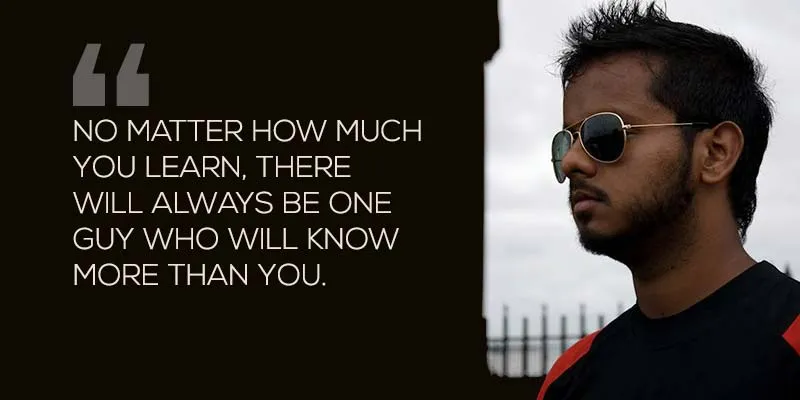
Here’s an excerpt of our conversation with Vivek which took place at the LocalOye office in a huge under-construction complex in Koramangala, Bengaluru.
From a below average student to getting distinction
We are happy that you’re leaving, we don’t have to prepare now.
These were the lines of professors at Dayanand Sagar College of Engineering when Vivek completed his graduation. He never found himself suited to the education system at schools and even in college where evaluation was based on a predefined text. After years of just making it to the next class, he met a friend who shared tricks to crack the system. As a result, Vivek graduated with a distinction.
Vivek’s mother was one of the early programmers in COBOL and his house had a computer from his childhood days. By the time, he walked into the 11th standard he could write programs in COBOL, C and Java. That is when he felt that he was not learning fast enough and was introduced to polytechnic by his aunt. He recalls,
“After 11th standard, I realized that I didn’t like anything but computers. I decided to discontinue school education and took admission in a polytechnic.”
Vivek liked the fact the polytechnic is hands on with a lot of emphasis on projects and labs unlike engineering. In the three-year course, Vivek worked on game development and web-based solutions. Under the guidance of some senior professionals, he understood how an enterprise solution is built.
19400 kms of unplanned journey and Startup 1.0
When one of Vivek’s old friend decided to start a creative consultancy, Vivek found himself a perfect solution to his restless being. He was designing websites for clients and made Rs 10000-20000 per project. After graduation, he convinced his four friends for an all-India trip. Although he had planned it, he didn’t share the itinerary with his fellow travelers until they reached Manali. They started from Bengaluru and went to Maharashtra, Gujarat, Himachal Pradesh, and West Bengal and came back after 45 days and 19400 kms. He recalls,
We slept in truckyards, ate in dhabas and only made phone calls to parents to convey that we’re alive. We met a lot of people and learnt a lot which eventually evolved our perception.
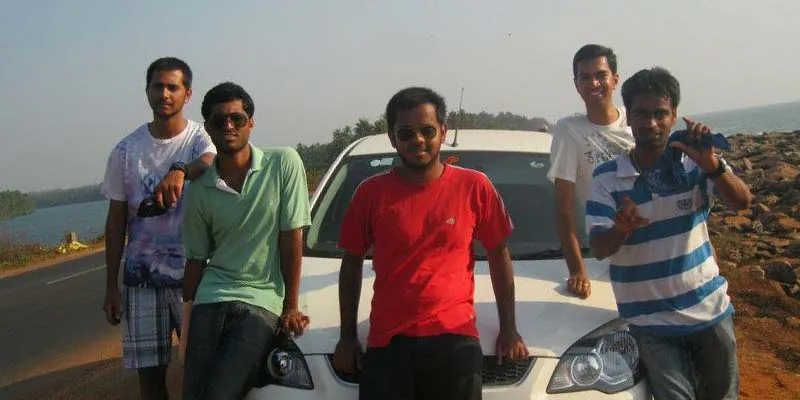
Vivek wanted to do things on his own and joined an e-learning startup, Embibe. He was the first engineer of the company, but his lack of experience in building an enterprise solutions product made sure that he didn't last for more than a month at that place. He says,
I grossly underestimated the work in the startup.
So he decided to join a mid-sized company in search of work and structure.
At the core of Netcore technology
Vivek joined Netcore in 2013 and worked for the first four months on the front-end development. He was part of engineering projects involving millions of transactions. He liked the healthy engineering culture of the company which was 24/7 open for engineers.
His luck played out in nine months when the senior engineers handling SMS delivery management protocol left and he was asked to work on that. The company didn’t have the code. They just had the structure and they were looking to produce and replicate the functionalities.
Vivek took care of the situation and received a lot of recognition for his work. He started craving for more work but couldn’t find anything. It was then that he started working on infrastructure management. He thought of implementing the existing infrastructure (SSMP protocol) meant for SMS to voice (Q931). At that time, Netcore had to outsource the voice related work because of lack of infrastructure. The company was keen on building an in-house capability. Vivek was assigned this task and he resorted to open source as the first step. He figured out that Astrick software provided a much higher abstraction for Q931 protocol as required in voice and one can build system on top of it. He recalls,
Senior engineers wrote the code and I was called by the CEO for the demo. We called the CEO on his phone and played a song. We did that to everyone in the room.
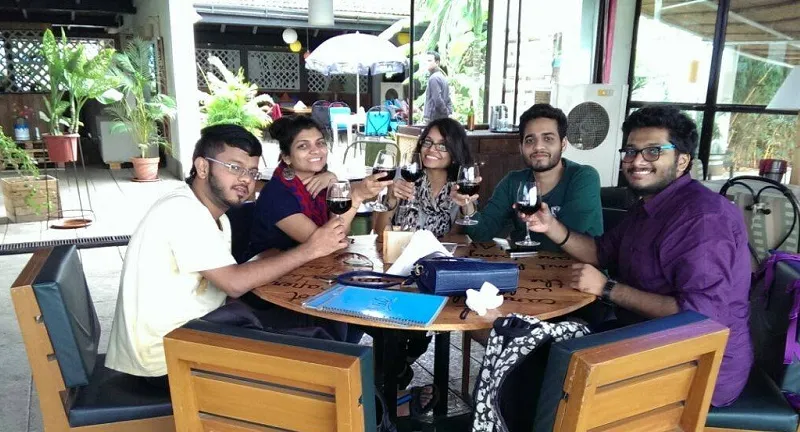
There was more to the excitement following Vivek’s work on voice gateways and he was asked by his engineering manager to expose Netcore’s infrastructure to Astrick software to enable it to handle high traffic from voice calls. He was assured that the other team would take care of building the aggregation part. The system was modified and given the name ‘Voice gate’. While the engineering manager handled the API side, Vivek was on the protocol side in this development.
Scaling up the systems for 'Kan Khajura Tesan' and 'Satyameva Jayate'
When HUL approached Netcore with the idea of 'Kan Khajura Tesan' project, Netcore didn’t have the infrastructure to support the scale. They lost the contract to a Bengaluru-based company and though they had built the system after some time, it was tested a little later.
With the voice capability, Vivek was confident to handle scale and when Netcore won the contract for Satyameva Jayate's ‘Miss call campaign’ (on a toll free number to agree/disagree on a topic), it was showtime for him. He says,
Our operations team told us that we are estimating 45000 missed calls per second where Airtel mapped them to our PRI (primary rate interface) lines. We executed without a single glitch and our company pivoted to the IVR (Interactive Voice Response) solutions.
Apart from building the IVRS from SMS delivery management infrastructure, Vivek learnt the most important lessons on scaling up systems. But the learning had hit a plateau and the process of building IVR was not as gratifying as building the previous systems. Vivek realized that even in his college days, the best days were when he was alone and he was missing them at Netcore.
Vivek maintains that at Netcore, he was with the best team he has worked till date. But after the CEO for nine years in the company walked out along with the head of sales and operations, he wasn’t comfortable with the change which came in.
Startup 2.0 – Building LocalOye
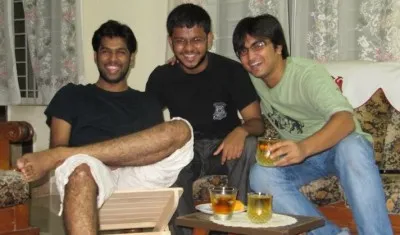
Vivek says,“I had failed in my first startup. But I was very interested in data. Marketplace was very exciting and juicy and I knew how to scale system but not how to shape data.”
These situations created an environment challenging enough for Vivek to pursue and he joined LocalOye as the Head of Technology in August 2014. He says,
Engineering was in a mess and the situation was gloomy here. Anupam (the previous technology head) had just moved out and only a fresher was left in the tech team.
At the time of joining, LocalOye was like Justdial and Vivek’s task was to make the mobile website and then the transition to mobile only. Initially, LocalOye was a venue discovery platform and after realizing the limited market size, they moved from vertical to horizontal marketplace for bespoke services.
Technology @ LocalOye
Vivek noticed that LocalOye backend had apache server running mysql query on python django. The system was so elemental that every time multiple people attempted to populate data, it went down. Vivek bought his learning of service oriented architecture from Netcore to LocalOye. He wants to ensure that there’s service to everything, from push notification to the database search.
At LocalOye, the tech team decided to use the Zero RPC protocol to make the web service and interface better. The infrastructure is exposed and communicated over the wire to get the return value. One could completely engineer the white spaces and convert into frames and impressions. Vivek says, “It is elegant and exposes the power of event driven programming in synchronous interface.”
The company is also using a scheme dialect of Lisp for AI (Artificial Intelligence) which includes basic NLP (Natural Language Processing) and artificial domain specific language. The true value-add is the ability to automate everything by defining rules and schemes. Vivek explains,
Use NLP to parse specific search data with Python as underlying interpreter. Python is known for its huge library and functions and this exposes all these into the scheme (dialect of Lisp). This gives us power to do anything real time.
Vivek is building the systems at LocalOye to handle 500K transactions by December 2015. In the process, he is keen to work on data intelligence with Dev-Ops team writing rules based on decisions taken by the marketing team.
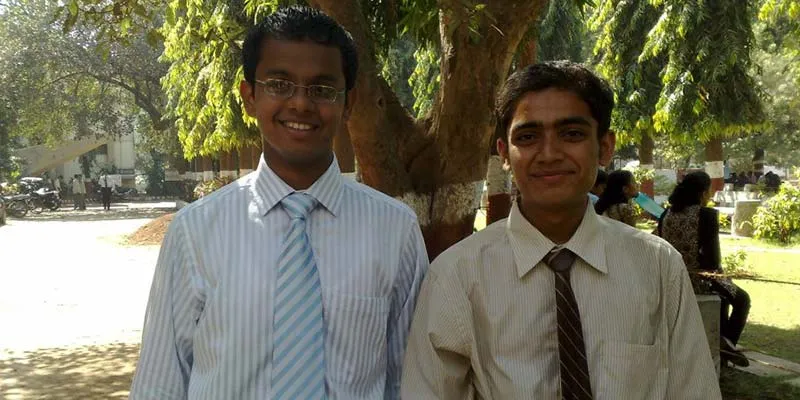
Hiring Philosophy
Vivek sees attitude and not just the aptitude of the person while hiring for tech team at LocalOye. He says,
If you’ve passion & hunger then it doesn’t matter how much you know. Google (search) is always there. I believe in open source. If I was judged on the basis of what I knew I wouldn’t have reached where I am and I respect that.
He also looks for the curiosity in the person and checks it with a set of questions across technologies like web-based, data modeling, and operating systems.
What is technology?
According to Vivek, technology is a means to an end. He says,
Your knowledge of languages might not be relevant pretty soon. Designing system structure is very important. My idea of differentiating between good and bad engineering team is simple. The team which is well thought out is better.
Vivek believes that people who are closest to something should not decide what to build and instead focus on how to build. He clarifies,
I’ve never encouraged a developer to decide what to build. We have a series of experiment and the product team takes that call. Decision should be taken by the guy who looks at consumer experience.
Misconceptions and learning
Vivek is just 26 years old and believes that he doesn’t know enough to have misconceptions. However, he shared his learning over the years as follows:
- The culture of a company really matters. You should work with people and not for people.
- The real value of a code depends how you design system. Scaling out happens through great design whereas technology enables scaling up.
Of all the mistakes committed till date, over-engineering things tops Vivek’s list. He says,
I was fascinated by multi threaded programming system. During a lunch conversation with my manager, he referred to an article by Steve Yegi (Kingdom of nouns). I went through it and immersed myself in Object Oriented Languages. I was trying to understand some of the event driven codes by best programmers. Eventually, I learnt that premature optimization was not required.

What defines the techie in this Techie Tuesday?
Vivek believes that one should stay curious, ask questions and never accept anything at face value. He says,
You should always be ready to unlearn and be humble. No matter how much you learn, there will always be one guy who will know more than you. Learn from everyone and be cognizant of the fact that we can learn.
Interesting problem statements keep Vivek going because he likes to bite more than he can chew.






![[Techie Tuesdays] Vivek Padmanabhan, the 26-year-old traveler techie building intelligent data systems](https://images.yourstory.com/cs/wordpress/2015/06/Techie-Tuesdays-Vivek-Padmanabhan.jpg?mode=crop&crop=faces&ar=2:1?width=3840&q=75)




